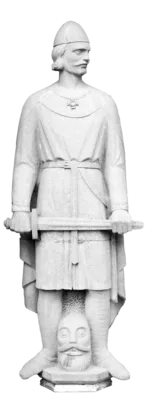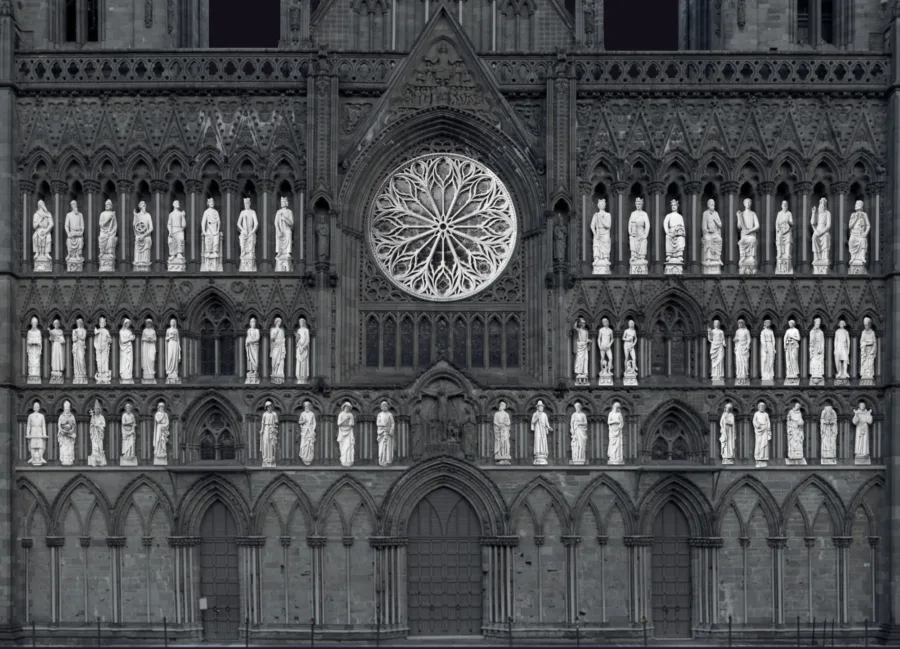Bishop Sigurd
Sigurd’s task was to help Olav Tryggvason convert Norway to Christianity.

Sigurd was an English bishop who, according to the sagas, accompanied Olav Tryggvason to Norway in 995 to help him convert the country to Christianity. Before leaving England, he was consecrated as a missionary bishop. To help him proselytise in Norway, he brought with him a number of other missionary priests.
After Olav’s death, Sigurd travelled to Sweden where he continued his missionary work under the name Sigfred. He is also said to have baptised the Swedish king Olof Skötkonung.
Sigurd was buried in the cathedral at Växjö in Småland, Sweden, and was subsequently canonised.
According to Swedish legend, a miracle occurred when Sigurd was travelling. His three assistants Unamann, Sunamann and Vinamann were murdered and decapitated. Their heads were placed in a wooden tub and submerged in a lake. When Sigurd went past, the heads floated to the surface and told him who had carried out the gruesome deed.

The Statue
The statue depicts Sigurd in episcopal garb. In his hands he is carrying a wooden tub containing three decapitated heads.
The statue has been given the face of the poet Aasmund Olavson Vinje (1818–1870), who was born in the same place as the artist. The heads are portraits of three architects with whom the artist had fallen out: Gudolf Blakstad, Herman Munthe Kaas and Helge Thiis.
-
Feast day
February 15th
-
Attribute
Wooden tub with three decapitated heads
-
The sculpture
The statue was modelled by Dyre Vaa in 1933 and carved by Kristofer Leirdal. It was erected in 1944.


